What did a couple of guys decide to do with their Bowdoin education? Not content with simply cold winters in Maine, Evan and Josh embarked on careers that took them to Russia, where they say nights are longest. Separated by nearly 20 years, they arrived in Russia during similar periods. Josh witnessed the first disillusionment with the promises of post-Soviet life, while Evan witnessed Russia throw cold water on some of the norms and views the West had long assumed about Russia. Join us for an informal discussion about living and working in Russia, on being a Bowdoin grad abroad, learning Russian, living in Russia during a time of pandemic, or any other topic you may want to ask two guys living in Moscow.
Evan Gershkovich is a reporter for The Moscow Times, an independent English-language news website covering Russia from its capital city. He was previously a news assistant for The New York Times and graduated from Bowdoin in 2014.
Josh Tulgan works for AFK Sistema, a Moscow-based investment company (www.sistema.com). His company is active in a number of businesses, including telecommunications, agribusiness, healthcare, forestry, retail and a number of tech funds. He graduated from Bowdoin in 1995. Since he visited Russia as a junior at Bowdoin, he has spent close to 25 years in Russia.
The discussion was co-moderated by Laura Howells '20 (Russian and Gov double-major) and Dr. Reed Johnson, Lecturer in Russian.
Watch Zoom Discussion (Access password: 3h$5D@28)
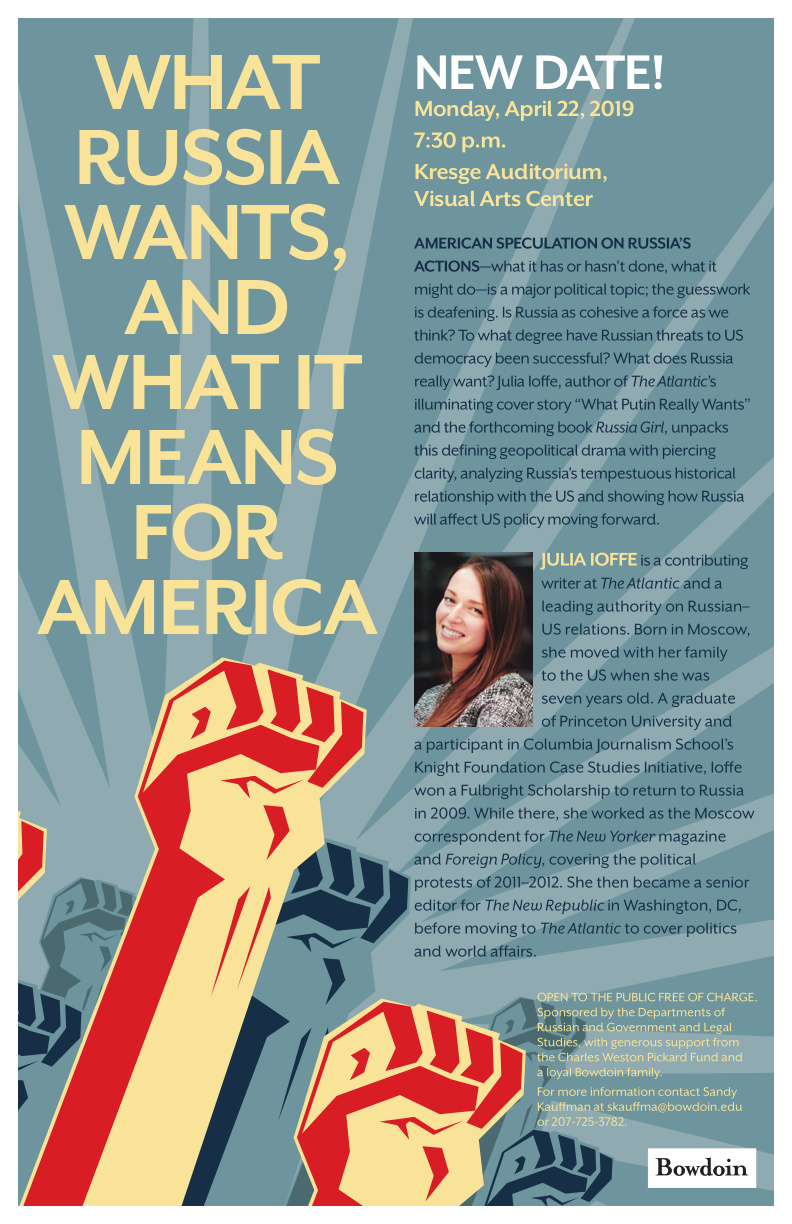 What does Russia really want? American speculation on Russia’s actions – what it has or hasn’t done, what it might do – is a major political topic; the guesswork is deafening. Is Russia as cohesive a force as we think? To what degree have their threats to US democracy been successful? Julia Ioffe – author of the illuminating Atlantic cover story “What Putin Really Wants” and the forthcoming book Russia Girl – has emerged as the premier voice to access Russia’s intentions, and what they mean for America. A gifted speaker, Ioffe unpacks this defining geopolitical drama with piercing clarity, showing us how we got here, and what lies ahead.
What does Russia really want? American speculation on Russia’s actions – what it has or hasn’t done, what it might do – is a major political topic; the guesswork is deafening. Is Russia as cohesive a force as we think? To what degree have their threats to US democracy been successful? Julia Ioffe – author of the illuminating Atlantic cover story “What Putin Really Wants” and the forthcoming book Russia Girl – has emerged as the premier voice to access Russia’s intentions, and what they mean for America. A gifted speaker, Ioffe unpacks this defining geopolitical drama with piercing clarity, showing us how we got here, and what lies ahead.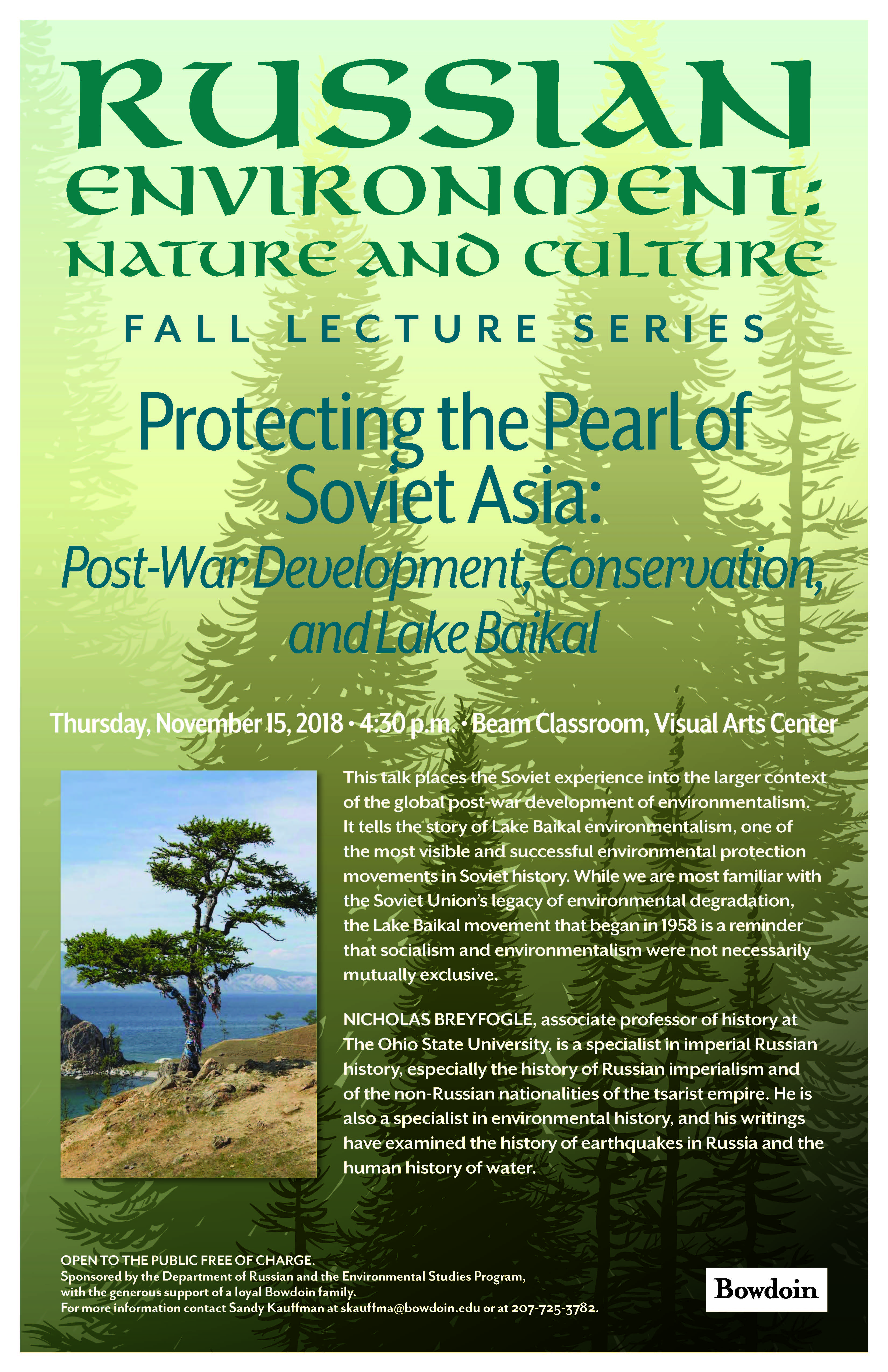 This talk tells the story of Lake Baikal environmentalism in the context of Soviet economic strategies, and it places the Soviet experience into the larger context of the global post-war development of environmentalism. While we are most familiar with the Soviet Union’s legacy of environmental degradation, the Lake Baikal movement which began in 1958 is a reminder that there did exist important environmentalist efforts in the Soviet Union, and that socialism and environmentalism were not necessarily mutually exclusive.
This talk tells the story of Lake Baikal environmentalism in the context of Soviet economic strategies, and it places the Soviet experience into the larger context of the global post-war development of environmentalism. While we are most familiar with the Soviet Union’s legacy of environmental degradation, the Lake Baikal movement which began in 1958 is a reminder that there did exist important environmentalist efforts in the Soviet Union, and that socialism and environmentalism were not necessarily mutually exclusive. 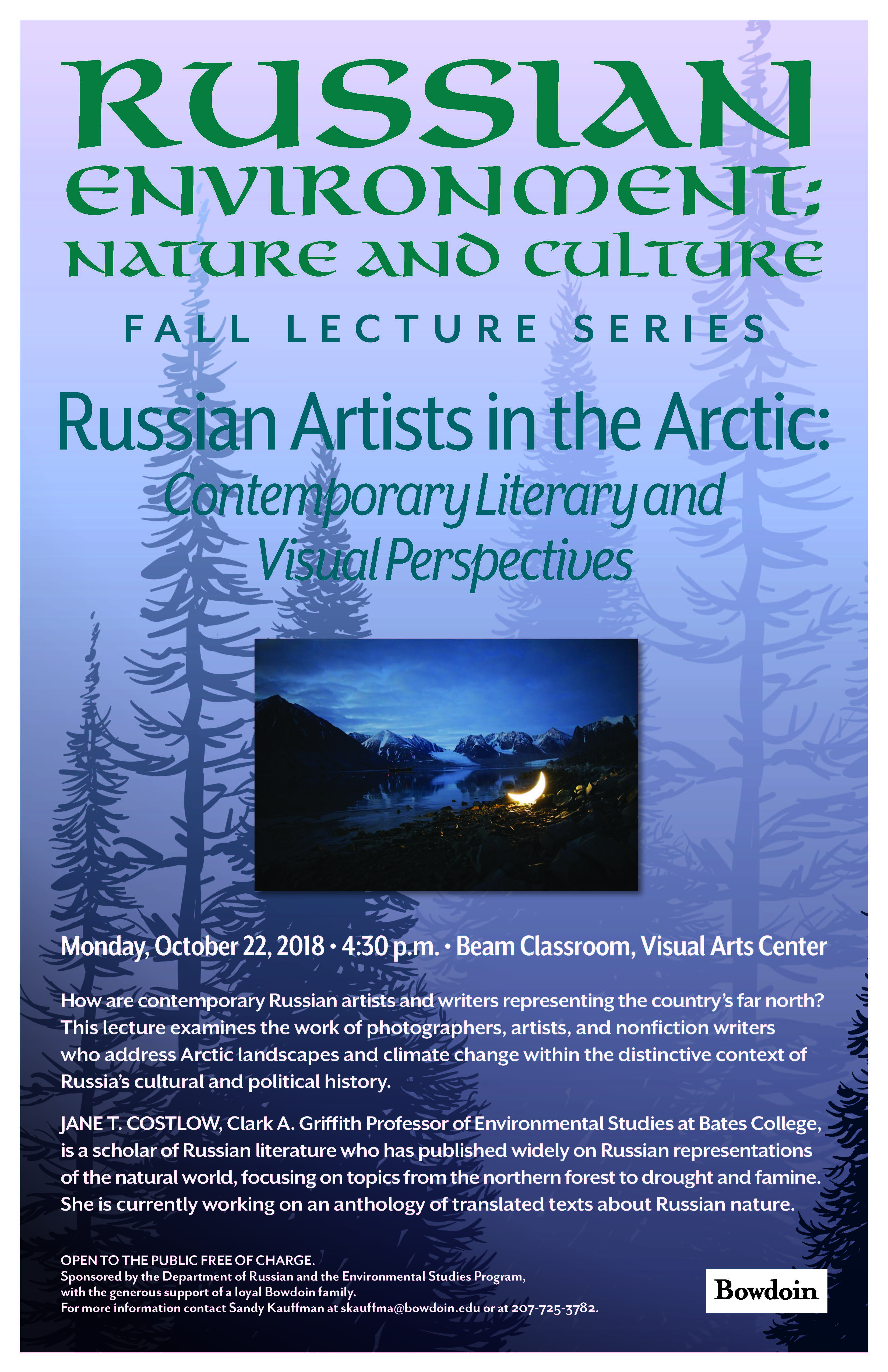 How are contemporary Russian artists and writers representing the country's far north? This lecture examines the work of photographers, artists and non-fiction writers addressing arctic landscapes and climate change within the distinctive context of Russia's cultural and political history. Professor Costlow is a scholar of Russian literature who has published widely on Russian representations of the natural world, focusing on topics from the northern forest to drought and famine. She is currently working on an anthology of translated texts about Russian nature.
How are contemporary Russian artists and writers representing the country's far north? This lecture examines the work of photographers, artists and non-fiction writers addressing arctic landscapes and climate change within the distinctive context of Russia's cultural and political history. Professor Costlow is a scholar of Russian literature who has published widely on Russian representations of the natural world, focusing on topics from the northern forest to drought and famine. She is currently working on an anthology of translated texts about Russian nature.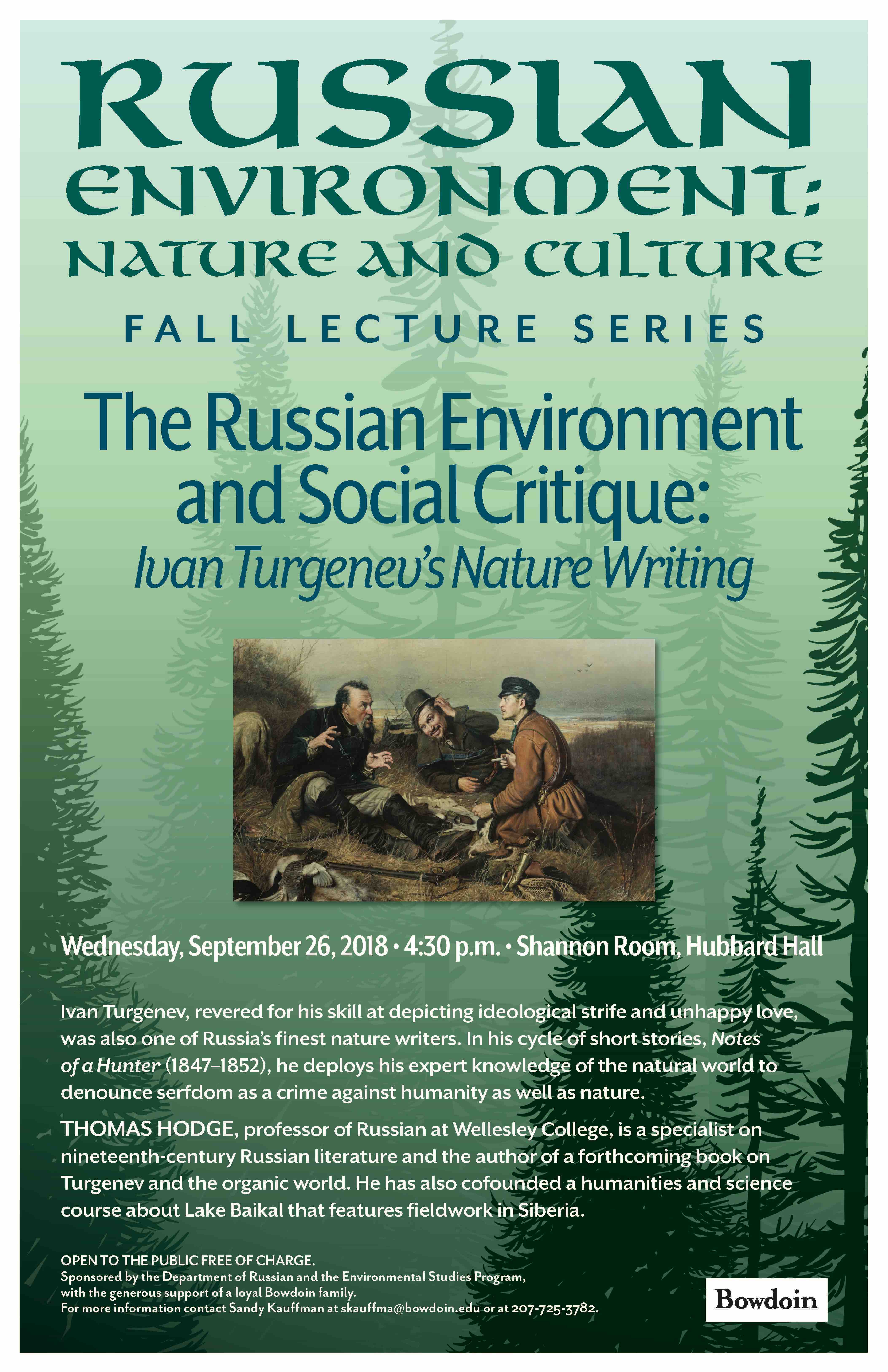
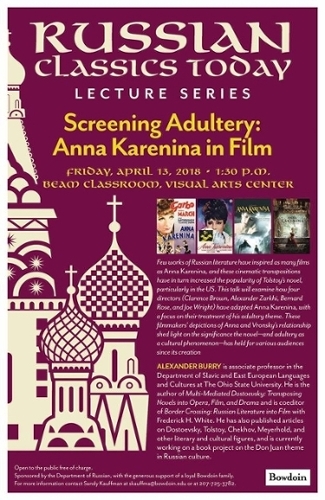
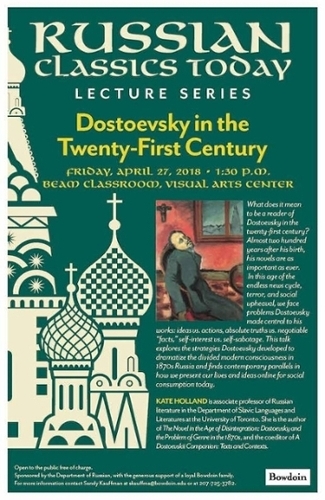
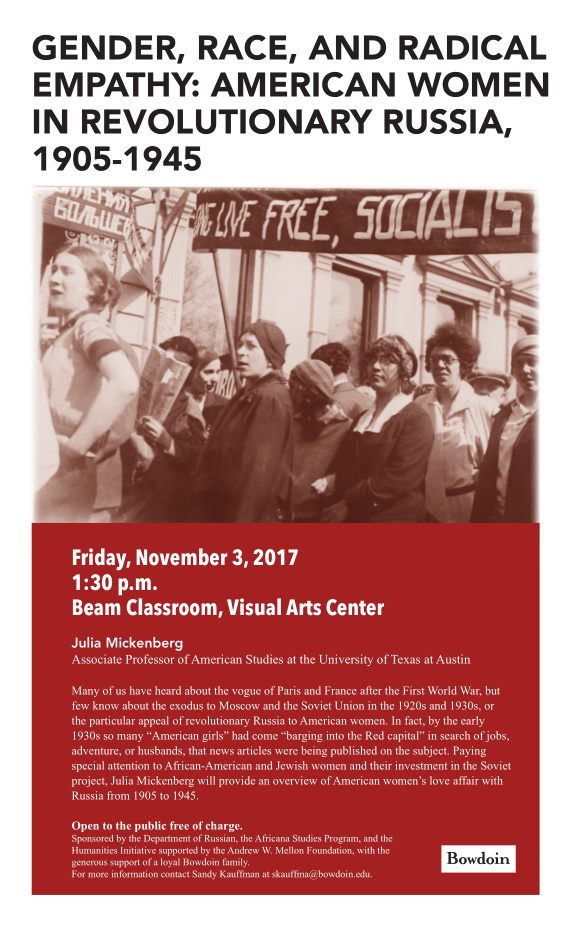
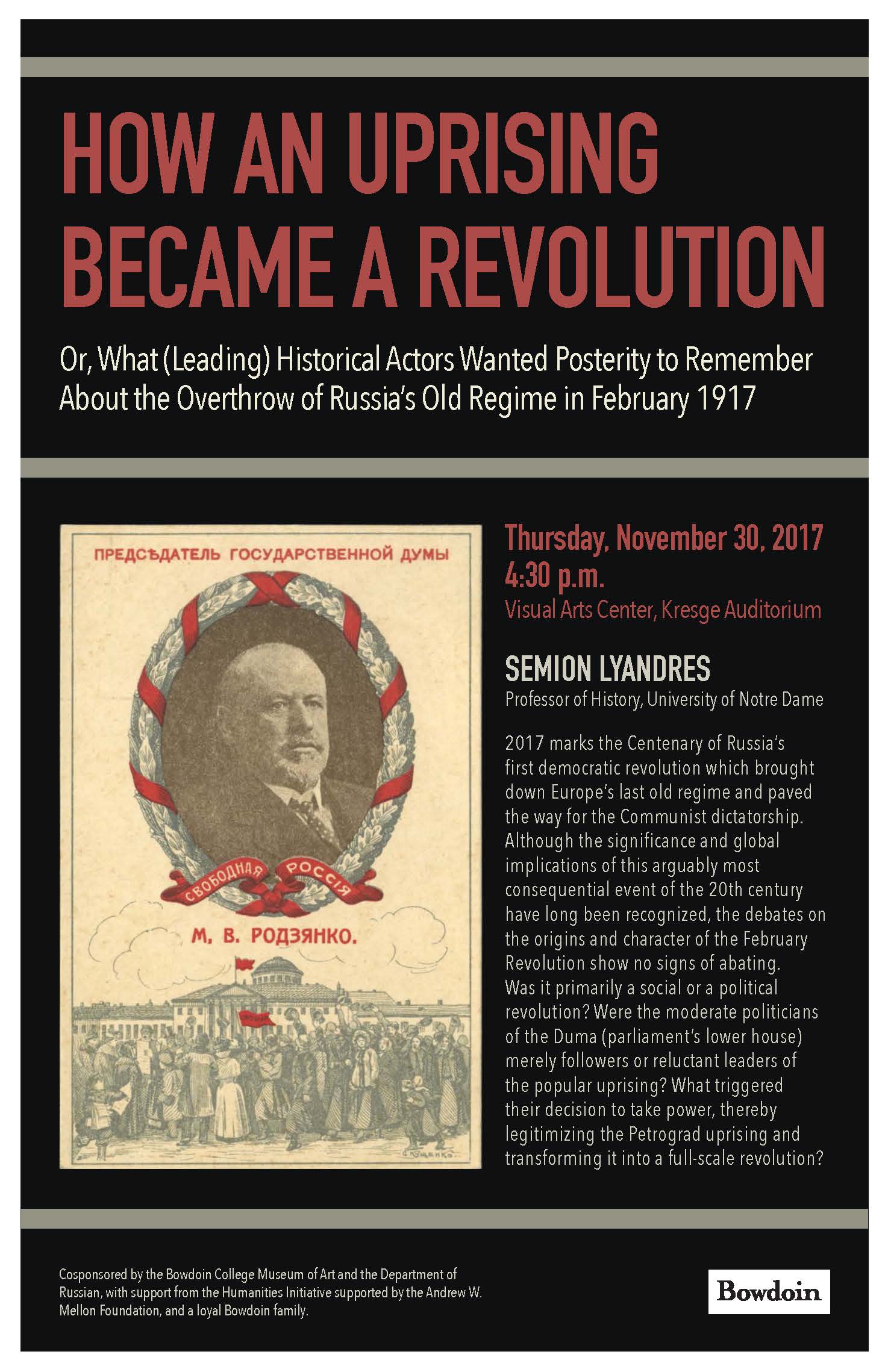
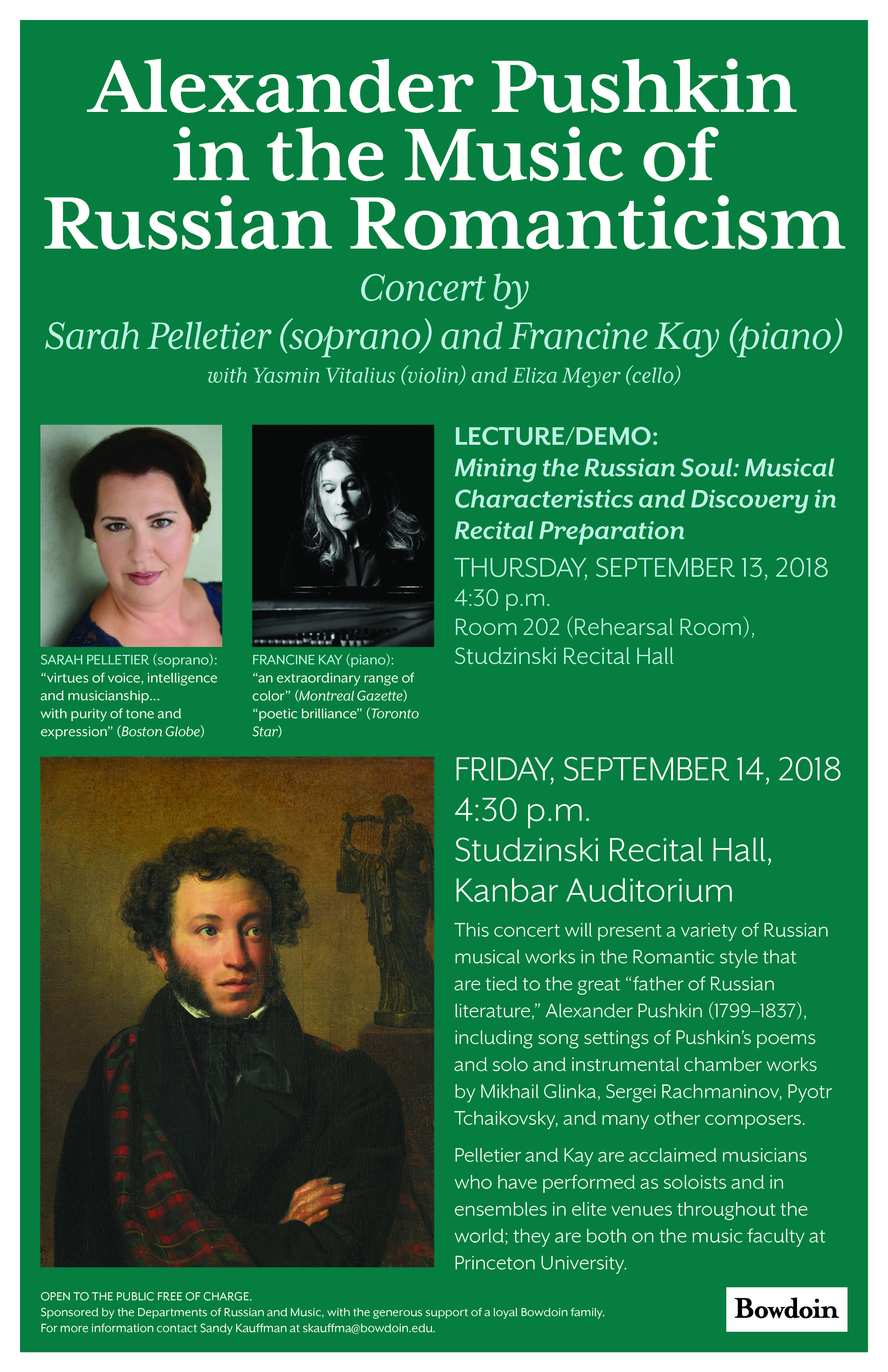 This concert presents a variety of musical settings of poems by the great Russian poet and “father of Russian literature” Alexander Pushkin (1799-1837), by composers including Mikhail Glinka, Sergei Rachmaninov, Nikolai Rimsky-Korsakov, Alexander Dargomyzhsky, Nikolai Medtner, and others...
This concert presents a variety of musical settings of poems by the great Russian poet and “father of Russian literature” Alexander Pushkin (1799-1837), by composers including Mikhail Glinka, Sergei Rachmaninov, Nikolai Rimsky-Korsakov, Alexander Dargomyzhsky, Nikolai Medtner, and others...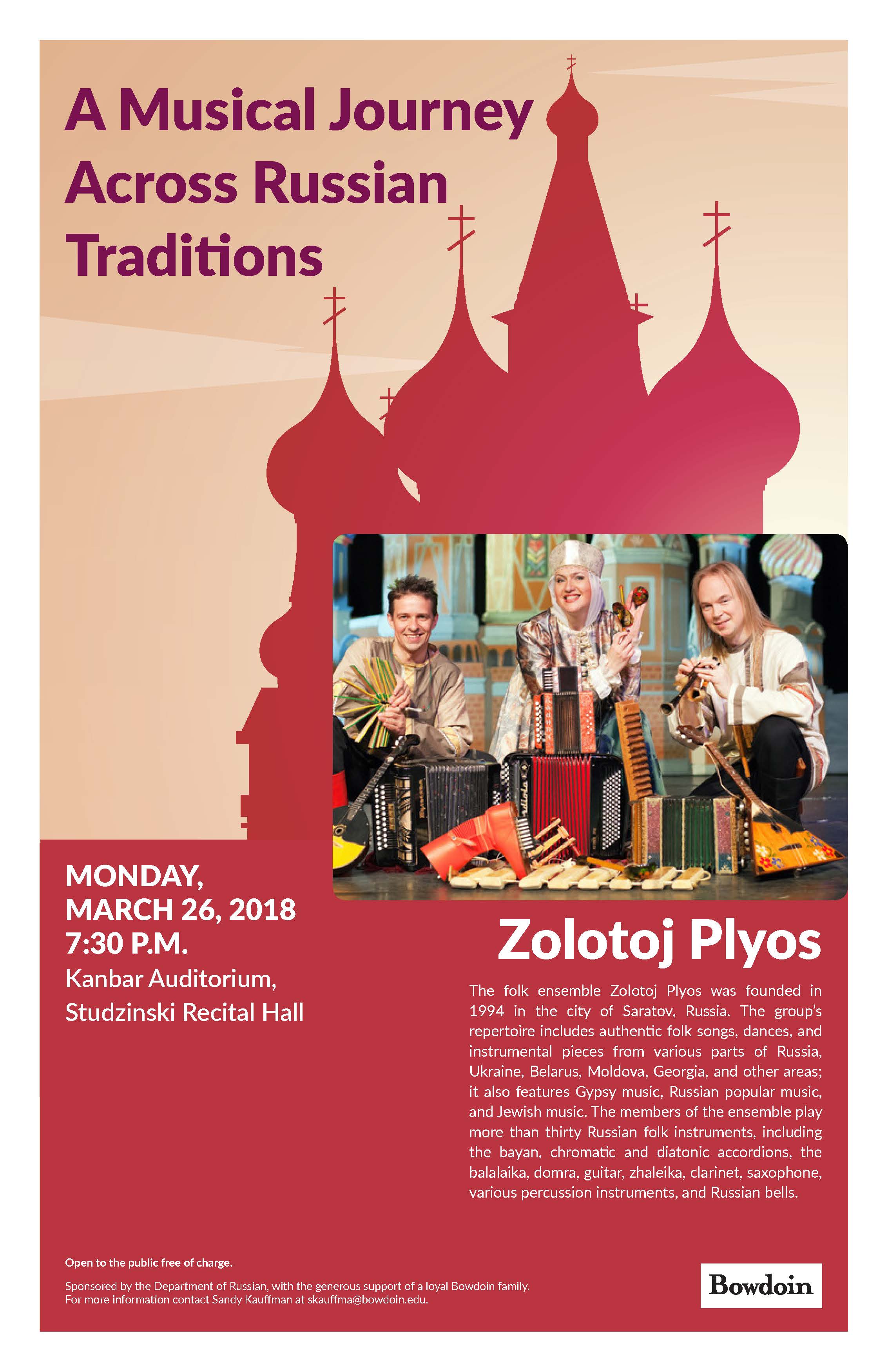 The Zolotoj Plyos folk ensemble presents a virtual journey through Russia, with demonstrations of musical styles, costumes, songs, dancing, and more than thirty Russian folk instruments. Founded in 1994 in the city of Saratov, Russia and currently based in Belgium, the ensemble is comprised of members Alexander Solovov, Elena Sadina, and Sergei Grachev, who collectively play more than thirty Russian folk instruments, including the bayan, chromatic and diatonic accordions, the balalaika, domra, guitar, zhaleika, clarinet, saxophone, various percussion instruments, and Russian bells.
The Zolotoj Plyos folk ensemble presents a virtual journey through Russia, with demonstrations of musical styles, costumes, songs, dancing, and more than thirty Russian folk instruments. Founded in 1994 in the city of Saratov, Russia and currently based in Belgium, the ensemble is comprised of members Alexander Solovov, Elena Sadina, and Sergei Grachev, who collectively play more than thirty Russian folk instruments, including the bayan, chromatic and diatonic accordions, the balalaika, domra, guitar, zhaleika, clarinet, saxophone, various percussion instruments, and Russian bells.